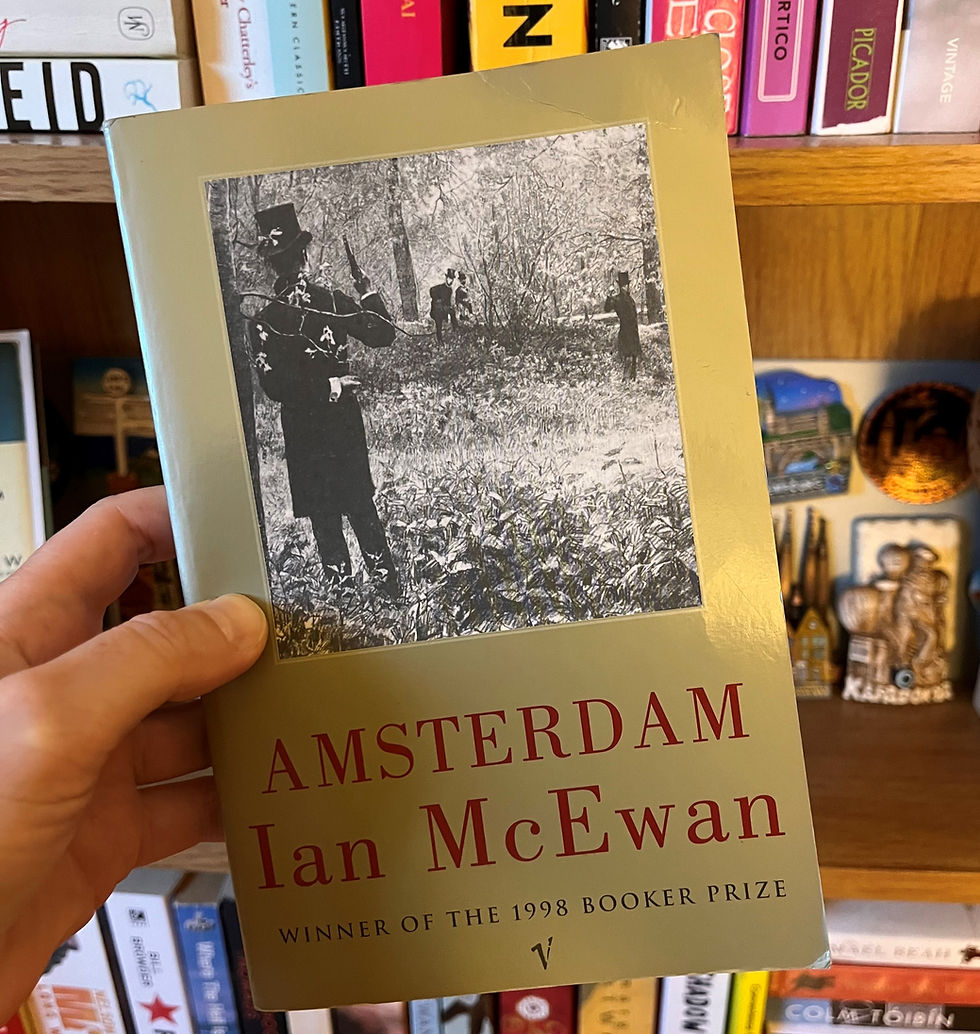Amsterdam by Ian McEwan
- theworldthroughbooks

- Jul 13, 2023
- 2 min read
Updated: Jan 2, 2024

Gathered at the North London funeral of Molly Lane – desirable, talented, dead at 46 of an unspecified, madness-inducing disease – are her unpopular widower George, a plutocratic publisher, and at least three of her lovers. Clive Linley is a successful but conservative composer. Vernon Halliday is the latest editor of The Judge. Then there is the Foreign Secretary, Julian Garmony. Photographs come to light that show Garmony cross-dressing. Should Vernon publish his exposé and destroy the political “enemy” or is Clive correct that this betrays Molly, who took the snaps in private?
Darkly humorous, Amsterdam is told alternately from the perspectives of Clive and Vernon. They are good friends but each of them has habits that annoy the other. Vernon is rather ruthless and Clive is absent-minded, preoccupied with composing a symphony to welcome in the new millennium.
Clive and Vernon address various moral dilemmas. The first is that they both become more conscious of their own mortality following Molly’s funeral. Every small ache causes each of them to feel an uncomfortable anxiety, wondering if this is the beginning of the end. Clive asks Vernon if he would be willing to arrange for him to be euthanised if he were to become extremely unwell. Vernon is shocked by this idea and seethes about Clive’s request for several days before agreeing to it on condition that Clive reciprocates the favour.
Their second and main moral dilemma is that Molly’s widower, George, shows Vernon some photographs that Molly took of Julian Garmony in which he is wearing female clothing. Vernon is desperate to publish these in The Judge. It is Clive’s turn to be shocked – what business is it of anyone else’s what Julian wears in his spare time? – but Vernon persists. Inevitably, things become complicated and the great reveal is not quite what Vernon anticipated.
McEwan portrays the characters in Amsterdam as unlikeable but relatable. The characters’ thoughts are unfiltered, carrying all of the grudges and vindictiveness that we probably all think inside our heads but generally have the self-awareness not to express aloud. Because we have this undiluted perspective of Vernon and Clive, we can sympathise and understand their feelings whilst experiencing the uncomfortable realisation that we are not necessarily in a position to take the moral high ground as we can perhaps all be as malicious and critical of other people are Clive and Vernon are.
The story (of course) ends up in Amsterdam for a celebration of Clive’s symphony but takes an unexpected twist at the end.



Comments